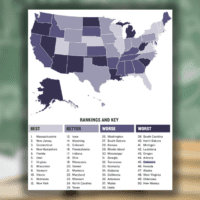

HB 280 sets new forfeiture requirements and switches the burden of proof to the courts. (Photo by Shutterstock)
A new bill that would limit the power of the state to seize assets from Delawareans was applauded in the House Public Safety & Homeland Security Committee Tuesday.
House Bill 280, sponsored by Rep. Kim Williams, D-Marshallton, prohibits assets from forfeiture if they are near controlled substances or with trace amounts of such.
The bill points out that legal presumption is that money, negotiable instruments or securities that are close to or with small amounts of controlled substances are forfeitable.
Under the bill, the controlled substance can still be admissible and considered by the court in a forfeitable proceeding, but it puts the burden of proof on the state to prove all elements of a forfeiture case by a preponderance of the evidence.
Under the existing statute, it is the burden of an innocent owner to prove that they did not have knowledge of or consent to the use of their property in an unlawful act.
The bill also prohibits the forfeiture of currency less than $500, and prohibits forfeiture unless a criminal charge is brought.
“It is difficult for individuals to contest low-dollar forfeitures,” Williams said. “According to the Institute of Justice, hiring an attorney to fight a relatively simple state forfeiture can cost up to $3,000.”
3,000 forfeitures
Almost 3,000 forfeitures happened from 2018 to 2022, and at least 22% of these cases have individuals apply to retain their seized assets, and 67% of those individuals represented themselves in court. The majority of the forfeitures were against Black individuals, Williams said.
The bill also allows a claimant property owner who substantially prevails in a forfeiture proceeding to recover reasonable attorney’s fees and costs.
If passed, the bill would have about a $600,000 operating expense to the state, mostly with personnel costs.
HB 280 creates a lengthy list of details for the Department of Justice to record for each seizure they conduct, such as:
- The number of seizures made and whether the property seized was currency, a conveyance, real estate or other property.
- The amount of currency seized in each instance, or where the property seized is non-monetary, an estimated value of the seized property.
- The lead charge in the criminal case associated with each seizure.
- Aggregate data on the race, ethnicity, age and gender of persons whose property was seized.
Another part of the record would have to include the number of seizures where the associated criminal case ended in each of the following: A conviction, guilty or no contest plea, or entry into a pretrial diversion program; or, a dismissal, acquittal, or non-prosecution.
The number of cases where each of the following occurred will also need to be tracked. This includes:
- Property was ordered forfeited by the Court.
- Property was forfeited pursuant to a plea or non-prosecution agreement.
- Property was ordered by the Court to be returned to the owner.
- Property was returned to the owner without a court order.
The number of seizures by each law enforcement agency in the state is another requirement.
Several Democratic legislators thanked Williams for what they called a great bill – even Rep. Rich Collins, R-Millsboro, told her he really appreciates the bill.
HB 280 now heads to the full House floor for discussion.


Raised in Doylestown, Pennsylvania, Jarek earned a B.A. in journalism and a B.A. in political science from Temple University in 2021. After running CNN’s Michael Smerconish’s YouTube channel, Jarek became a reporter for the Bucks County Herald before joining Delaware LIVE News.
Jarek can be reached by email at [email protected] or by phone at (215) 450-9982. Follow him on Twitter @jarekrutz and on LinkedIn
Share this Post








